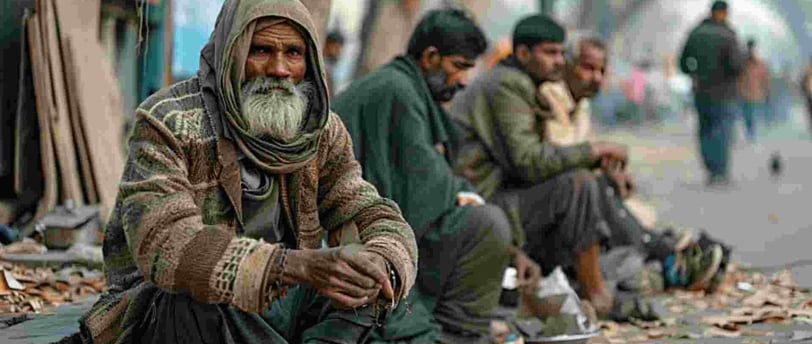Giving money to beggars? Police will file an FIR against you in this city from January 1
This measure aligns with the Union government’s pilot project under the SMILE (Support for Marginalized Individuals for Livelihood and Enterprise) scheme, which aims to make 10 cities, including Indore, free of begging.According to the Ministry of Social Justice and Empowerment, begging represents the 'most extreme form of poverty'.


The Indore district administration announced that starting January 1, 2025, individuals found giving alms to beggars in the city will face legal action, including the registration of a First Information Report (FIR). The decision aims to make Indore beggar-free as part of a broader initiative by the Union Ministry of Social Justice and Empowerment.
District Collector Ashish Singh stated that an awareness campaign against begging is underway and will continue until the end of December 2024. Speaking to the media, Singh urged residents to refrain from giving alms, stating, “I appeal to all residents of Indore not to become partners in the sin by giving alms to people.”
An order banning begging has already been issued, and enforcement will begin in January. The administration has identified organised gangs exploiting vulnerable individuals for begging and claims to have rehabilitated many people engaged in the practice.
This measure aligns with the Union government’s pilot project under the SMILE (Support for Marginalized Individuals for Livelihood and Enterprise) scheme, which aims to make 10 cities, including Indore, free of begging.
The scheme, implemented through state governments, local authorities, and voluntary organisations, provides a range of services such as:Awareness generation
Identification and rehabilitation of beggars
Access to medical care
Counselling and education
Skill development for sustainable livelihoods
The initiative acknowledges that begging is often not a choice but a matter of survival, and its rehabilitation efforts are designed to uphold the dignity of destitute individuals while empowering them to participate in decisions affecting their lives.
According to the Ministry of Social Justice and Empowerment, begging represents the “most extreme form of poverty” and requires long-term collective action rather than forced measures. The 2011 Census estimated India’s population of beggars and vagrants at approximately 4.13 lakh, with the majority classified as non-workers and around 41,400 as marginal workers.
In addition to enforcement, the administration emphasised rehabilitation efforts for those involved in begging. Singh noted that forced begging often involves exploitation by organised criminal networks, which the administration has been actively working to dismantle.

